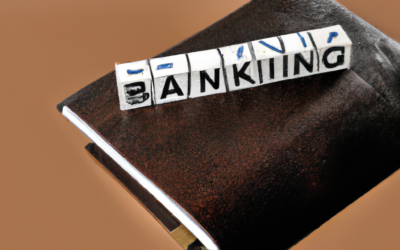Binance US Ends FDIC Coverage for Crypto Deposits
Introduction
Binance US, one of the leading cryptocurrency exchanges in the United States, has recently updated its terms of service to indicate that crypto deposits are no longer FDIC insured. This means that users who hold cryptocurrencies on the platform will no longer have the same level of protection as traditional bank depositors.
New Terms of Service
According to the updated terms of service, Binance US users must now first convert their dollars to stablecoins or other cryptocurrencies before withdrawing. This change implies that while users can still hold USD in their Binance US accounts, it will not be eligible for FDIC coverage. The decision to end FDIC coverage for crypto deposits reflects the unique nature of cryptocurrencies and the associated risks involved.
Why Did Binance US End FDIC Coverage?
There are several reasons why Binance US made this decision. Firstly, cryptocurrencies are decentralized and operate outside the traditional banking system. Unlike traditional fiat currencies, there is no central authority or government guaranteeing the value or safety of cryptocurrencies. This lack of centralization and guarantee is a key factor in the decision to end FDIC coverage for crypto deposits.
Secondly, cryptocurrencies are highly volatile and their value can change rapidly. This volatility adds an additional layer of risk for banks and financial institutions. The FDIC, which primarily focuses on insuring deposits in traditional banks, may not be equipped to handle the unique risks associated with cryptocurrencies.
Lastly, the regulatory landscape for cryptocurrencies is still evolving. While some countries have embraced cryptocurrencies and put in place regulations to protect investors, others have imposed restrictions or outright bans. The lack of a clear regulatory framework makes it challenging for traditional bank insurance programs like the FDIC to provide coverage for cryptocurrencies.
Implications for Users
The end of FDIC coverage for crypto deposits on Binance US has implications for users. While Binance US has taken various security measures to protect users’ funds, the absence of FDIC insurance means that users will bear the risk of any potential losses themselves. It is crucial for users to understand and accept this risk before engaging in cryptocurrency trading or holding.
It is worth noting that Binance US is not the only cryptocurrency exchange that does not provide FDIC coverage for crypto deposits. Most exchanges operate outside the traditional banking system and do not offer the same level of protection as traditional banks. Users should always research and choose reputable exchanges with a strong track record of security and customer protection.
Frequently Asked Questions
1. What is FDIC coverage?
The Federal Deposit Insurance Corporation (FDIC) is an independent agency of the United States government that provides deposit insurance to depositors in US banks. FDIC coverage protects depositors’ funds in case of bank failures, up to a certain limit.
2. Why did Binance US end FDIC coverage for crypto deposits?
Binance US made this decision because cryptocurrencies operate outside the traditional banking system and lack centralized control and government guarantees. The highly volatile nature of cryptocurrencies and the evolving regulatory landscape also contribute to the decision.
3. What are the risks of holding cryptocurrencies on Binance US?
The main risk is that users’ funds are not FDIC insured, meaning they are not protected against potential losses. Cryptocurrencies are subject to price volatility, hacking attempts, and regulatory changes. Users should carefully consider these risks and take appropriate measures to secure their funds.
Conclusion
Binance US’s decision to end FDIC coverage for crypto deposits reflects the unique nature of cryptocurrencies and the associated risks. While this change may concern some users, it is important to understand the evolving regulatory landscape and the risks inherent in cryptocurrencies. Choosing a reputable exchange, implementing strong security measures, and staying informed are essential for users to protect their funds.





